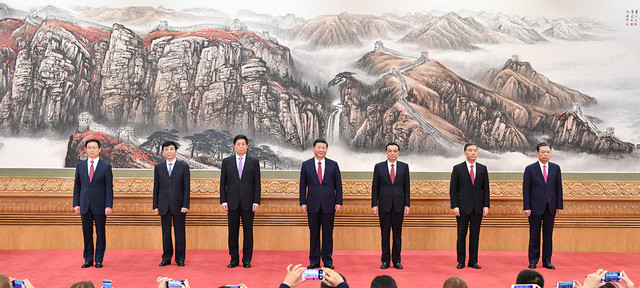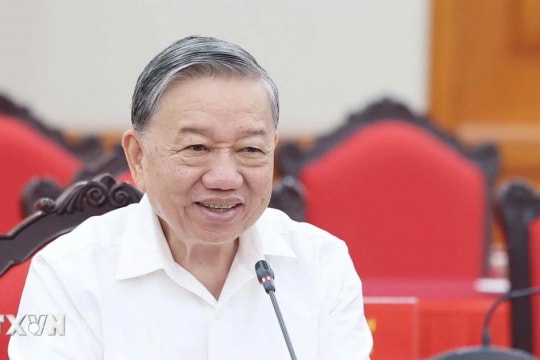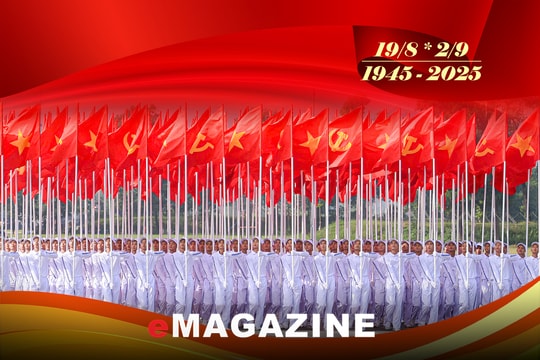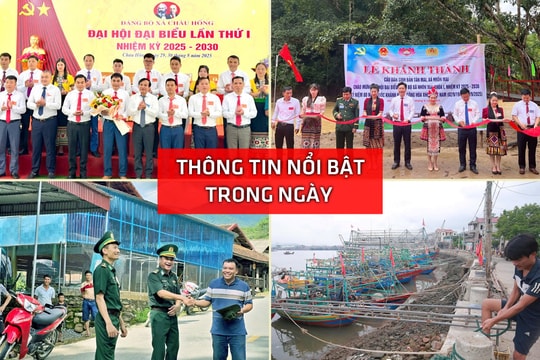Experts talk about China's new leadership
The five new members of the Politburo Standing Committee of China are expected to support General Secretary Xi Jinping in implementing major political plans in the future, Chinese experts say.
 |
| The 7 top leaders of the 19th Communist Party of China. Photo: Xinhua |
On the morning of October 25, the 19th Central Committee of the Communist Party of China held its first meeting and elected the Politburo, the Politburo Standing Committee, and the General Secretary. The members of the Central Committee of the Communist Party of China continued to elect Mr. Xi Jinping, 64 years old, as General Secretary of the 19th Central Committee of the Communist Party of China. The Politburo Standing Committee consists of 7 members: General Secretary Xi Jinping, Premier Li Keqiang, Li Zhanshu, Wang Yang, Wang Huning, Zhao Leji, and Han Zheng.
Mr. Li Zhanshu, 67 years old, is the Director of the Central Party Office, expected to become Chairman of the Chinese National Assembly, many Chinese newspapers, includingSouth China Morning PostVice Premier Wang Yang, 62, is expected to become chairman of the National Committee of the Chinese People's Political Consultative Conference (CPPCC), the Chinese People's Political Consultative Conference (CPPCC) said yesterday.
Wang Huning, 62, the Communist Party of China's top theoretician and head of the Central Policy Research Office, is expected to become head of the party's ideological, propaganda and organizational affairs agency. Zhao Leji, 60, was elected secretary of the Central Commission for Discipline Inspection yesterday, Xinhua reported. Han Zheng, 63, Shanghai Party Secretary, is expected to become vice premier.
Yesterday, Xi Jinping was elected Chairman of the Central Military Commission. Xu Qiliang and Zhang Youxia were elected Vice Chairmen of the Central Military Commission. General Xu replaced Vice Chairman of the Central Military Commission Fan Changlong when Fan, 70, retired. General Zhang is the Director General of the General Armaments Department.
According to Chinese analysts, the presence of new faces in the Politburo shows that Mr. Tap wants continuity and consensus, but also prepares the foundation for bigger changes in the future.
Mr Xi introduced the six members of the Standing Committee at a televised news conference. It was Mr Xi’s first televised speech since he was officially confirmed as the most powerful leader in decades when his name was added to the party’s constitution, putting him on par with Mao Zedong and Deng Xiaoping.
Xi has set his vision of turning China into a prosperous modern socialist power by 2050 and leading the country to overcome challenges in an uncertain world. The Chinese general secretary once again affirmed that China's development has entered a new era in which the country, under his leadership, will pursue peace and stability in the world.
He also brushed aside growing concerns about China’s rise, declaring that the country was ready to play a greater role in building “a common mission for mankind.” He pledged that China would continue its independent and peaceful foreign policy, uphold international justice and not interfere in the internal affairs of other countries.
Long term vision
One notable point for observers at the congress was that no one was chosen to succeed Xi. Analysts said the choice of leadership team showed that Xi still values political rules and continuity. The new line-up shows that Xi has been careful not to break the age rule and follow the hierarchical order. Such political rules are considered crucial for a Communist Party of 89 million members to achieve consensus at the top and ensure stability.
But Xi is not following a predetermined path mechanically, observers say. Not naming a successor paves the way for China to rethink its power transfer mechanism and give more potential candidates time to prove themselves. The abandonment of the succession mechanism that dates back to the time of leader Deng Xiaoping is a highlight of the leadership reform process, many experts say.
By expectedly choosing Li Zhanshu, a close ally of Xi, as chairman of the National People's Congress, and Zhao Leji, the youngest of the seven standing committee members, as head of the anti-corruption agency, Xi is sending a signal of his desire to institutionalize the power of the party and state, according to Chinese analysts.
Li could help Xi push through legal reforms to clarify gray areas in the legal system and improve party governance through legal means. With his rich experience in personnel management, Zhao could bring about more systemic changes in anti-corruption work. In addition, Xi is likely to restructure the party and state to improve efficiency, tighten discipline and protect China from the influx of Western ideas, observers predict.
According to Dan Tri
| RELATED NEWS |
|---|

.jpeg)
.jpg)



.jpg)

